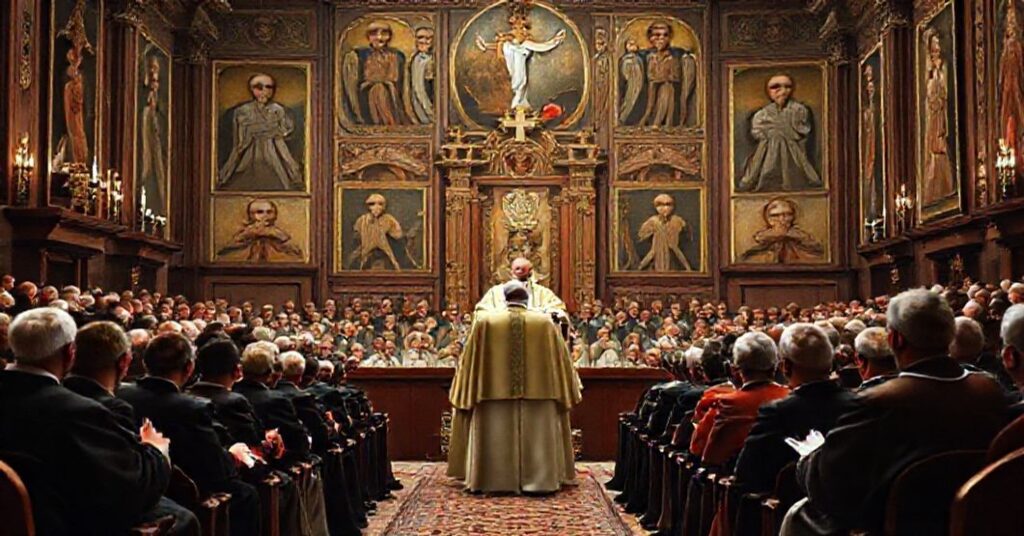Allocutio Ioannis XXIII ad Collegium Americanum (1959.10.11)
On October 11, 1959, John XXIII delivered a festive allocution at the Pontifical North American College in Rome, marking the centenary of the seminary. He extols the College’s history, praises the hierarchy and faithful of the United States, emphasizes institutional growth, academic and technical progress, and charitable initiatives, and presents the College as a model of “loyal collaboration” between hierarchy and people under “God’s Providence.” He highlights Roman formation as a unifying ecclesial center and closes by announcing procedural advancement in the cause of Elizabeth Seton, all in a tone of congratulatory optimism and civic-religious harmony. From the perspective of integral Catholic faith, this speech is an early and eloquent manifesto of the conciliar revolution: naturalistic, sentimental, ecclesiologically hollow, and oriented toward a Church reconciled with liberal America rather than subjected to the social Kingship of Christ.










